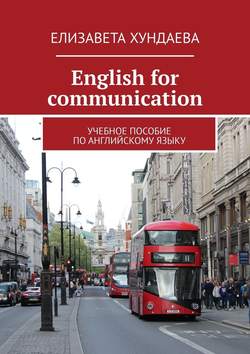Читать книгу Еnglish for communication. Учебное пособие по английскому языку - Елизавета Хундаева - Страница 9
Unit I
The phonetic exercises
The verb «to be»
ОглавлениеTo be – быть; являться; находиться; состоять в том, что; заключаться в том, что
Am – являюсь, нахожусь; is – является; are – являетесь, являемся, являются
Was – был (а); were – были; been – являвшийся, находившийся
Being – являющийся, находящийся; являясь, будучи, бытие
My being – то, что я являюсь (являлся, буду являться), нахожусь (находился, буду являться)
A living being – живое существо (создание).
I am We are I was We were
You were You are You wee You were
He (he, it) They are He (she, it) was They were
I am, was We are, were
You are, were You are, were
He is, was They are, were
I am You (we, they) were He (she, it) is
I (he, she, it) You (we, they) were
was
Are you a student? Yes, I am. (No, I am an office employee).
Are you home now? Oh, yes. (No, I am not home now, I’m still at work).
Is he in? No, he isn’t in. He’s away.
Are those thick books yours? Oh, yes they are. (No, they aren’t. They are my colleague’s).
Is the picture nice? Oh, yes, quite nice. (You know, it might be better).
My being present there is compulsory (необходимый).
Your being so serious was not too good.
His being busy at the moment was not too good.
Our being mistaken (то, что мы ощибались) was so bad.
We all are living beings (живое существо).
I’ll be We’ll be
You’ll be You’ll be
He’ll be They’ll be
Will they be here soon? Oh, yes, they’ll be here soon. (I’m afraid they won’t be here soon).
